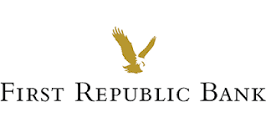
In the immediate aftermath of the banking crisis in mid-March, several of the key banks at the center of the crisis – including Silicon Valley Bank, Signature Bank, and Credit Suisse – were quickly hit with securities class action lawsuits. First Republic, another bank that suffered massive deposit withdrawals in March and that received a $30 billion infusion from J.P. Morgan and other large banks, has now been hit with a securities class action lawsuit after it announced its fiscal first quarter financial results on Monday. This latest lawsuit, only coming in as it does now, may fuel further uneasiness that the March banking crisis-related events, might not represent the end of the banking crisis story, nor the end of the related lawsuits.
On April 24, 2023, a plaintiff shareholder filed a securities class action lawsuit in the Northern District of California against First Republic Bank and certain of its directors and officers. A copy of the complaint can be found here. The complaint purports to be filed on behalf of investors who purchased First Republic shares between January 21, 2021, and March 14, 2023.
The gist of the lawsuit is that throughout the class period, the defendants reassured investors that it pursued and implemented a “safe and sound” business model, its diverse customer base, and its ability to weather a variety of weather conditions, and the strength of the company’s balance sheet. The complaint alleges that beginning in October 2022, investors began to “learn the truth” about the risks the bank faced when it disclosed declining net interest income (NII) and net interest margin (NIM), due to the Fed raising the overnight interest rate. The complaint alleges that notwithstanding these adverse developments, the defendants continued to reassure investors.
In early March 2023, when the sequence of events that eventually led to the demise of SVB began to unfold, investors began question First Republic’s ability to withstand the interest rate environment. Depositors began to withdraw massive amounts from the bank, and over the course of three trading sessions, the bank’s share price declined by over 72%. On March 15, 2023, S&P downgraded the bank’s long term issuer credit rating. Fitch also announced a rating cut. The bank’s share price declined another 21%.
The complaint alleges that during the class period, “Defendants misrepresented the strength of the Company’s balance sheet and liquidity position, while also understating the significant pressure rising interest rates posed to First Republic’s business model. Defendants also misrepresented the strength of the Company’s ability to deliver consistent results across different interest rate environments, the diversity of the Company’s deposit funding base, and the Company’s ability to generate NII growth and maintain stable NIM.” Even after investors began to question the company’s business model, “the Company and its executives continued to insist that First Republic was strongly situated to withstand the challenging economic environment.”
The complaint alleges that the defendants violated Sections 10(b) and 20(a) of the Securities Exchange Act of 1934 and Rule 10b-5 thereunder. The complaint seeks to recover damages on behalf of the plaintiff class.
Discussion
The short but intense flurry of events at SVB, Signature Bank, and Credit Suisse – a sequence that for each of these three banks included the filing of a securities class action lawsuit – has been followed by a period of relative calm. At the signs suggest calm may continue, at least in the immediately foreseeable period. However, the filing of the new First Republic lawsuit is a reminder that all of the fallout from turbulent events in the banking sector in March may not have yet settled.
The filing of a new lawsuit against First Republic now raises a number of questions, each disturbing in its own way. First, the new lawsuit raises the question whether there may be further lawsuits yet to come from the March events in the banking sectors. Second, the new lawsuit also resurfaces the question from March that had seemingly faded into the background, which is whether all of the shoes have dropped in the banking arena or whether there could be further disruptive events ahead. In that regard, much may depend on what the Fed does next with interest rate increases.
At a minimum, it does seem that we are now at the point where we can declare that when all is said and done on securities litigation filings in 2023, one of the year’s important events may be the number of new lawsuits in the banking sector, involving in particular banks whose operation or financial condition were adversely affected by the Fed’s continuing interest rate increases.
One final note. In numerous posts this year, I have noted that companies face a host of adverse macro economic conditions, including among other things, rising interest rates. Some of the adverse conditions, including the rising interest rates, sometimes translate into securities litigation — as this case demonstrates.